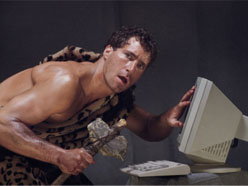
The study of behavioural finance tells us one thing: that investing involves a decision-heavy process riddled emotion, that the outcome is uncertain, and most importantly, that we are absolutely not hardwired to do it well.
So, where does this information leave clients, and their advisors, who are looking to grow and manage their wealth through investing?
In a CFA seminar held in Toronto yesterday, entitled “How Biology Impacts Investment Decisions”, Michael S. Falk, a partnering consultant for Focus Consulting, tackled the topic of how investors and their planners can both understand and battle our biology, in order to come out on top and be successful at investing.
Falk explained that we “satifice” our investments—in his view, we sacrifice higher returns for gains that merely satisfy our lowest expectations, stopping at what is “good enough.”
Individuals tend to attain only “imperfect optimization,” since we are all compromised by the constraints and biases caused involuntarily by our biology every day.
Through sight, sound, touch and smell, people are affected emotionally and intellectually through their experiences even before reaching the office every morning.
“Our senses prime us to lose or gain confidence, and affect our ability to make decisions,” said Falk, “We can also easily get decision fatigue, so after making a major decision, take a break. Subsequent decisions are rarely ever clear and good decisions.”
Read: North American consumer confidence rises
He added, “When you make a mistake, you also lose the ability to regulate your behaviour. Similar to a losing blackjack player, you may be tempted to bet the house in an effort to get even.”
Falk noted, however, that there are individuals more suited to the act of investing, likening their superior control and skill-set to that of professional athlete. These superior investors demonstrate that some people are just made to play the game better than others.
“Let’s talk about multi-tasking,” said Falk, “Some individuals are simply better informed and are better at managing short-term and long-term goals, and withstanding pressure. They can put up with the short-term losses associated with some securities in order to reap the greater benefits of long-term gains.”
He added, “As an advisor or planner, you need to make sure that your clients are also willing and ready to do the same though.”
Read: Informed Investors create a better market
In order to be smart about investing, Falk stresses the creation of pre-mortems and “if-then” decisions, where you decide, before you invest, what you will do in any given situation and where your investments may lead you, in order to avoid decisions tainted by emotion.
“Investors are only rational about the macro,” said Falk, “and hindsight is spectacular in the industry.”
He urges investors to consider who is driving their decision, who is controlling the outcome and who is selling their securities.
All advisors and clients should also create a purchase checklist weighing all possible factors before buying, as well as a journal measuring their personal performance in relation to their reasons for buying/selling and their frame of mind at the time of their transactions.
Also, while less than 10% of investors conduct a post-mortem on their securities and investment decisions, these can reveal the damaging habits and factors hindering personal performance.
Both individuals and groups can benefit from these practices, with groups benefiting through finding out the strengths of each team member and having the ability to then optimize the skills of their team in order to strengthen it as a whole.
Advisors and planners can also determine what they are best at doing, and focus on providing that service to their clients.
“If you are great at the macro, do that. If you are great at picking securities, do that,” said Falk. “People have to optimize their skills, and teams, so they can best present to their clients and know when offer additional resources.”